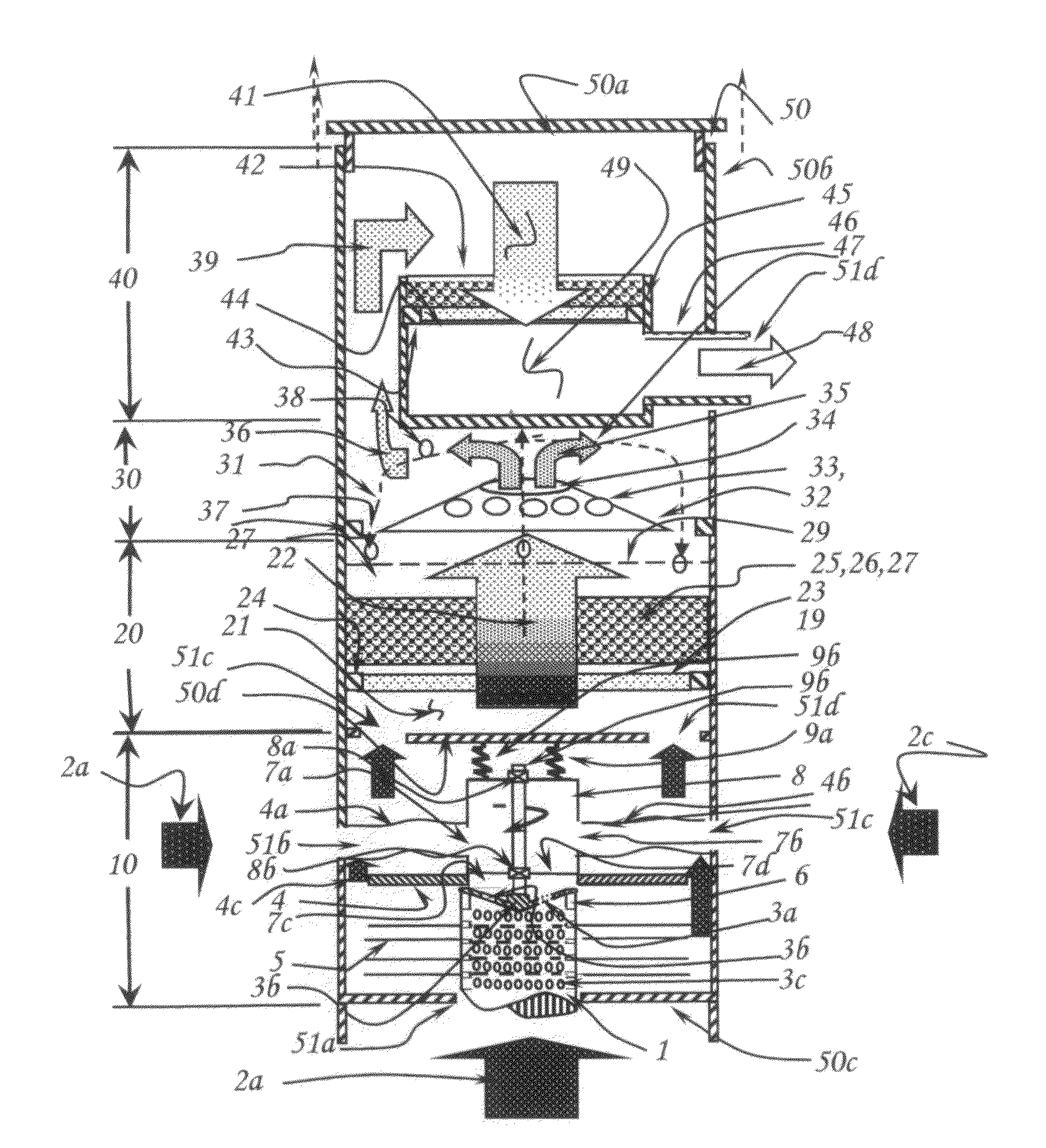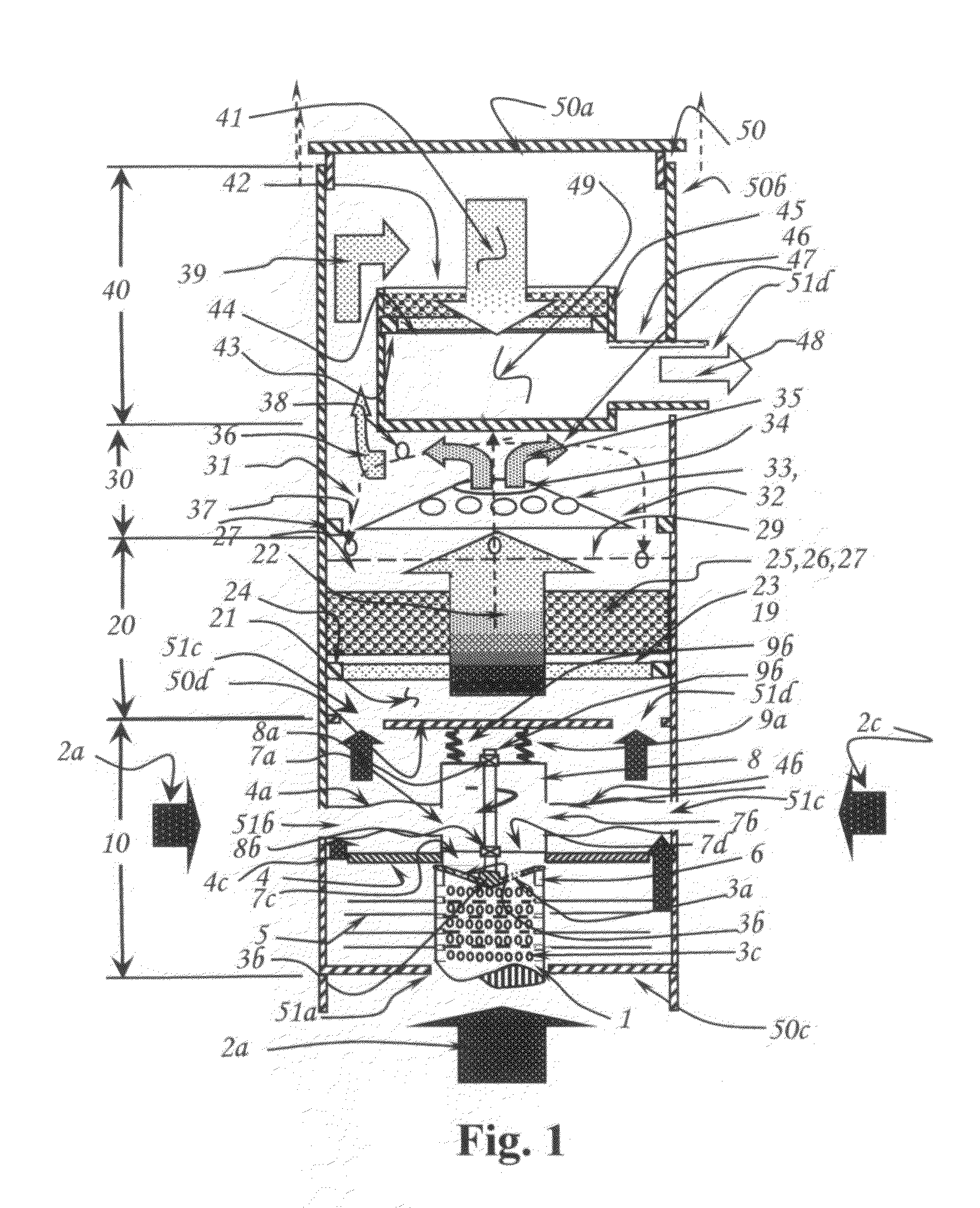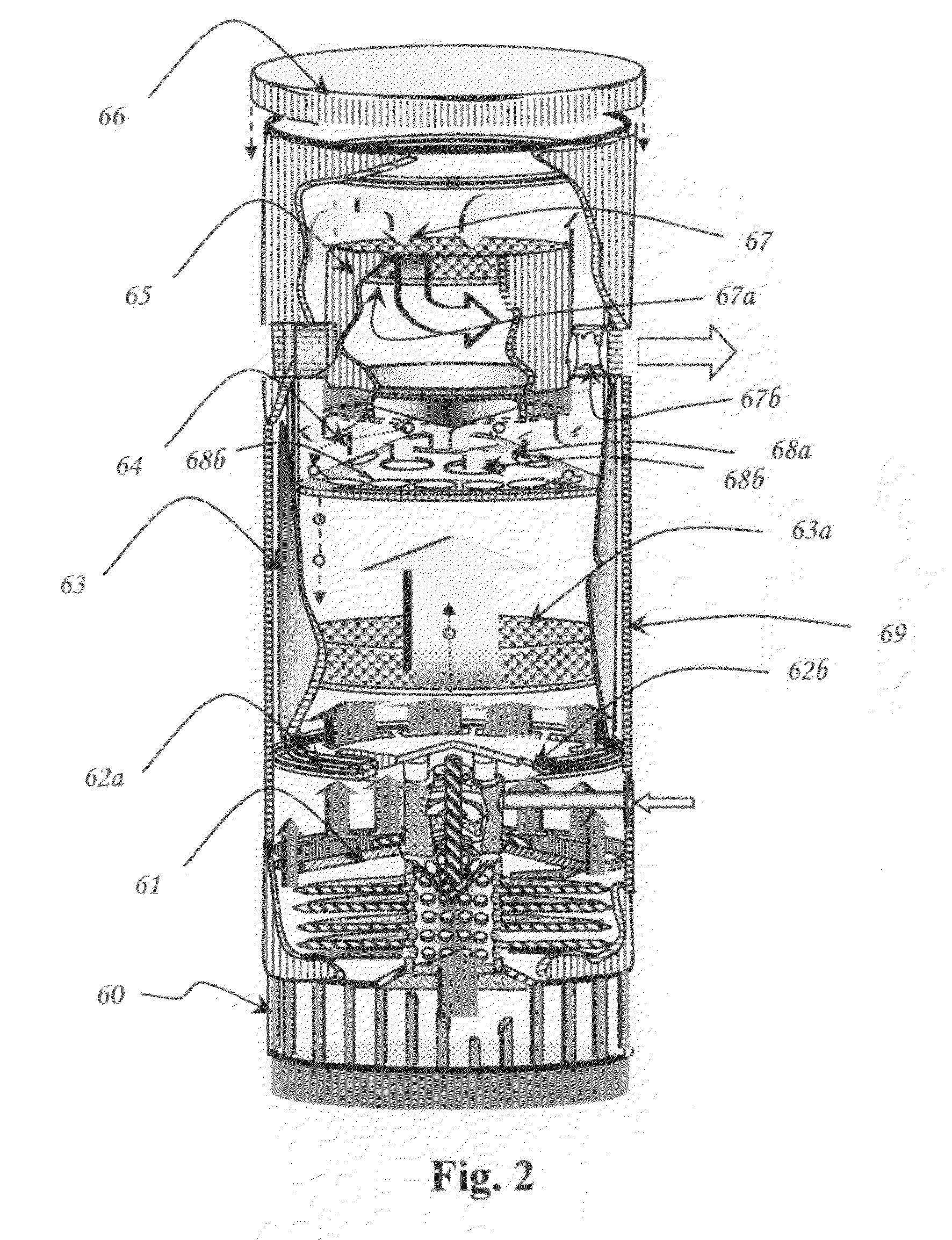Method and apparatus for pollution control of confined spaces
a technology for pollution control and confined spaces, applied in chemical apparatus and processes, separation processes, dispersed particle separation, etc., can solve the problems of 80% of commercial buildings not meeting engineering standards, pollutant is also known to be toxic to humans, and poor indoor air may cost the nation tens of billions of dollars each year in productivity and medical car
- Summary
- Abstract
- Description
- Claims
- Application Information
AI Technical Summary
Benefits of technology
Problems solved by technology
Method used
Image
Examples
Embodiment Construction
[0016]The present invention will be described with reference to the accompanying drawings which assist in illustrating the pertinent features thereof. The apparatus illustrated in FIG. 1, is a basic flow diagram of this instant air filtration invention, supplemented by U.S. patent application Ser. No. 10 / 867,943 filed on Jun. 14, 2004 entitled “Method And Apparatus For Combined Cycle Fluid Propulsion”, dealing with the boundary layer propulsion apparatus method of operation, supplemented in present art to stated the mode of operation as applied to the present air filtration apparatus currently under presentation in this invention.
[0017]In the current invention an occupied confined space (not shown) having contaminated air and represented in the current embodiment by confined space inlet air containing volatile organic compounds, heavy metals, acids, particulate matter, and living microorganisms, in said supply (2a, 2b, 2c), is induced into an enclosure (50), having an inner and oute...
PUM
| Property | Measurement | Unit |
|---|---|---|
| particle diameters | aaaaa | aaaaa |
| particle diameters | aaaaa | aaaaa |
| temperatures | aaaaa | aaaaa |
Abstract
Description
Claims
Application Information
 Login to View More
Login to View More - R&D
- Intellectual Property
- Life Sciences
- Materials
- Tech Scout
- Unparalleled Data Quality
- Higher Quality Content
- 60% Fewer Hallucinations
Browse by: Latest US Patents, China's latest patents, Technical Efficacy Thesaurus, Application Domain, Technology Topic, Popular Technical Reports.
© 2025 PatSnap. All rights reserved.Legal|Privacy policy|Modern Slavery Act Transparency Statement|Sitemap|About US| Contact US: help@patsnap.com



